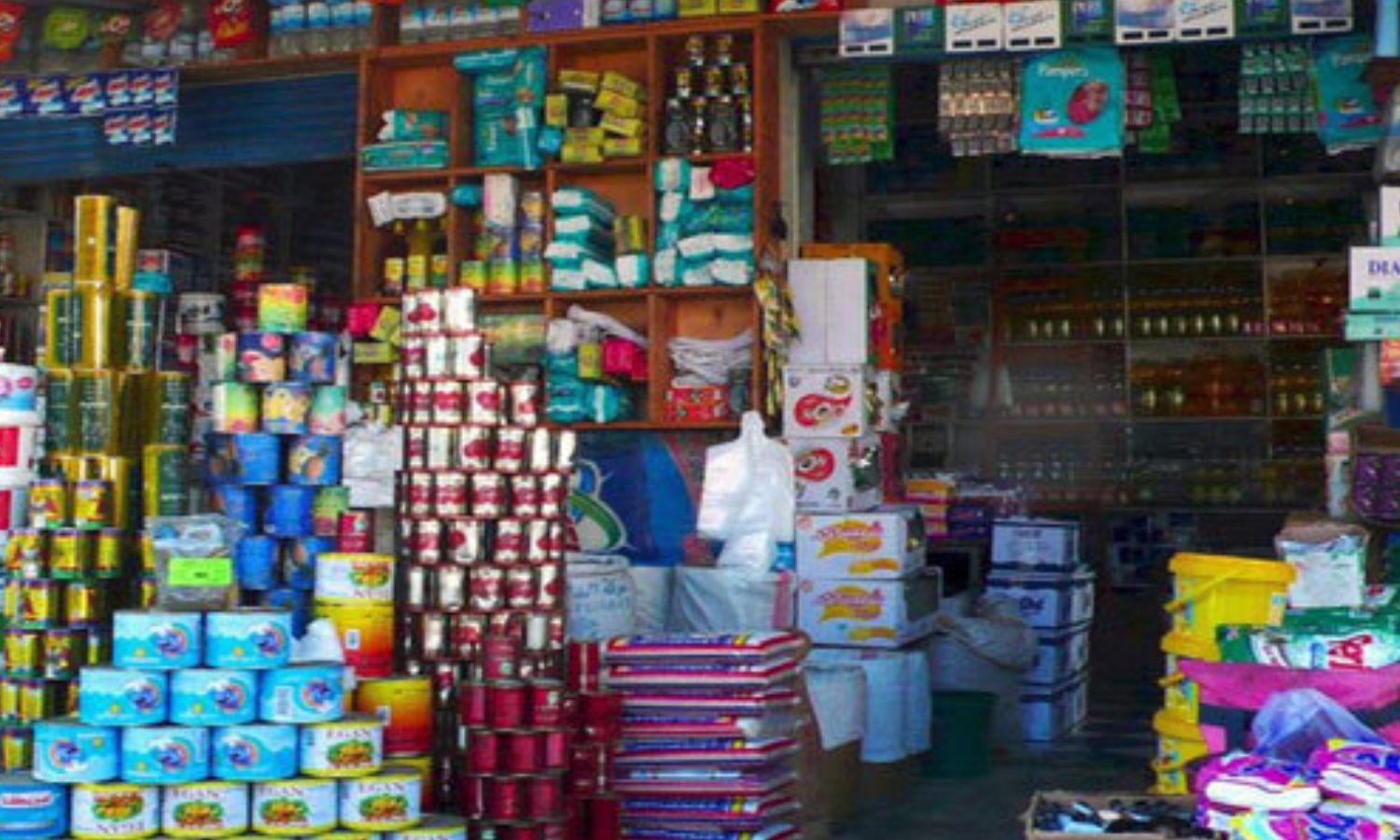



Enab Baladi – Orwah al-Mundhir
The food and supply sector in the markets of the central city of Homs suffers from stagnation due to the daily fluctuations in the exchange rate of the Syrian pound against the dollar, as wholesale companies have stopped distribution, pending new bulletins of the exchange rate by the Central Bank.
The “debt book” is considered essential in the foodstuff trade sector, and wholesalers give semi-wholesale merchants the goods on credit and from them to the owners of groceries in the same way, and the debts are collected in installments after selling the goods.
The fluctuation of the exchange rate and the imbalance in the markets forced merchants to claim their debts as quickly as possible in order to avoid losses resulting from the rise in the price of the dollar or food prices, which leads to debt erosion, lower profits and causes losses in capital, which confused the sector in general.
The food trade sector relies mainly on debts, as the presence of a “debt book” is considered essential in every grocery store. The decline in the economic situation and the high prices of materials contributed to raising the value of debts to record numbers in groceries and wholesale stores and semi-wholesale ones.
Ashraf al-Sheikh, the owner of a mini-market in al-Qusour neighborhood in the city of Homs, told Enab Baladi that the “debt book” is an essential pillar of the grocery store, and this has become a commercial norm.
He added, “But the rise in material prices increased the debt amount significantly. The total debts on the book are more than 9 million SYP, despite the fact that my grocery store is small and the capital does not exceed 30 million, and when demanding customers to pay their debts, some of them can pay, and some of them ask for an additional grace period.
The presence of a “debt book” is considered normal in any grocery store or any store in the state of stability in the value of currency and goods. However, with the fluctuation of exchange rates and commodity prices, debts began to erode, and many sellers refrained from selling on credit.
The exchange rate of the Syrian pound against the US dollar fluctuated during the past days between 8,800 and 9,200 Syrian pounds, according to the S-P Today website, which covers the trading rate of the Syrian pound to the dollar.
Maher al-Youssef, the owner of a supermarket in the Karm al-Shami neighborhood of Homs, told Enab Baladi that he had completely destroyed his “debt book” since the beginning of this year due to the losses he suffered and the accumulation of debts with the rise in the price of the dollar from 2,500 to 4,000 pounds at the beginning of 2023, considering that his decision is irreversible.
Al-Youssef added that many customers no longer go to the shop he owns, but this is better than the losses achieved because of these debts, which exceeded the amount of 30 million pounds, but the actual value is much greater because the pound has declined significantly against the dollar.
With the recent rise in the exchange rate, the merchants of food supplies were subjected to a major shock as a result of the pound losing about a quarter of its value within ten days, which prompted them to demand debts urgently, which pressured the semi-wholesale merchants and the owners of groceries.
Dhafer al-Salqini, the owner of a semi-wholesale store in Homs, told Enab Baladi that companies and commercial agencies have refrained from selling on credit and are now demanding that the value of their goods be paid in cash.
He pointed out that wholesalers and semi-wholesalers cannot cancel the issue of debt because it is a great attraction factor for customers.
With the recent declines in the price of the pound, debts began to cause many losses, and profits evaporated, apart from the loss of part of the capital, which prompted merchants to demand that all customers owe their debts or return unsold goods to their stores, according to al-Salqini.
However, the network of debts is complex, as it is a chain that starts from wholesalers to semi-wholesale merchants and then to the owners of groceries and customers, which makes collecting them extremely difficult.
Raed al-Hussein, the owner of a grocery store in the Akrama neighborhood of Homs, told Enab Baladi that collecting the accumulated debts from the merchant to the grocery store to the customers is not an easy matter, as all people are in distress due to the economic situation.
Al-Hussein added that the wholesaler demands debts from the semi-wholesaler, and the semi-wholesaler demands them from the grocery owner. “And I have to ask more than 45 customers to pay their debts, and not everyone can pay, which constitutes a real crisis in the food sector.”
The Syrian family, consisting of five members, needs 4 million SYP per month to cover its needs, according to the Kassioun Research Unit of the Popular Will Party in Damascus, in a report it issued last January.
The Omran Center for Strategic Studies issued a study at the end of 2022 in which it said that the average costs of a Syrian family exceeded 3.5 million Syrian pounds.
if you think the article contain wrong information or you have additional details Send Correction